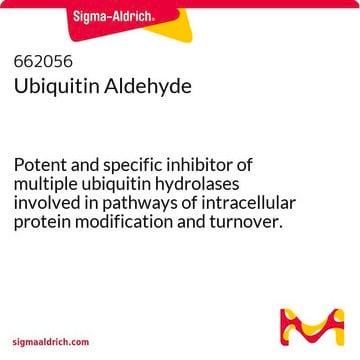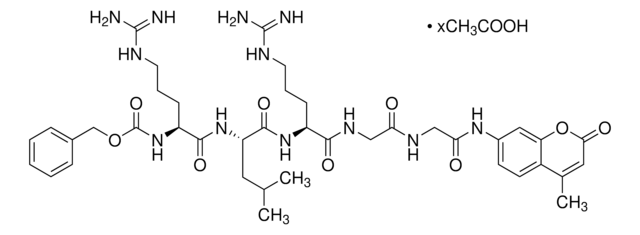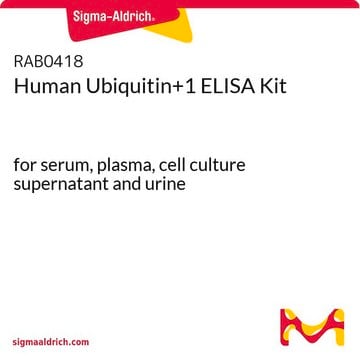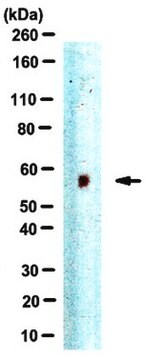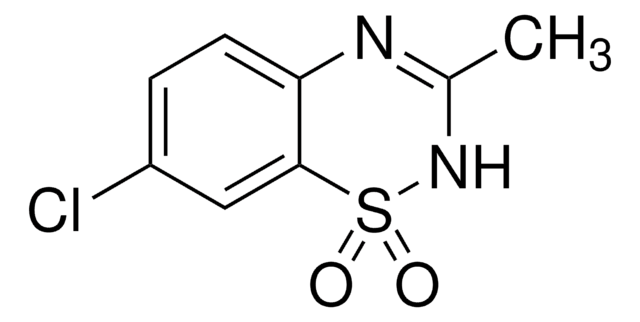U2258
Ubiquitin-7-amido-4-methylcoumarin
≥95% (HPLC), solution (supplied in DMSO)
Synonym(s):
Ubiquitin-AMC
Sign Into View Organizational & Contract Pricing
All Photos(1)
About This Item
Recommended Products
Product Name
Ubiquitin-7-amido-4-methylcoumarin, solution (supplied in DMSO)
Assay
≥95% (HPLC)
Quality Level
form
solution (supplied in DMSO)
shipped in
dry ice
storage temp.
−70°C
General description
Manufactured for Sigma by Boston Biochem. Inc.
Ubiquitin-7-amido-4-methylcoumarin (Ub-AMC) is a fluorogenic Ub-base probe. It consists of AMC conjugated to the glycine residue of ubiquitin. Ub-AMC is a fluorogenic substrate for ubiquitin C-terminal hydrolase-L3 (UCH-L3) as well as other UCH isozymes.
Application
Ubiquitin-7-amido-4-methylcoumarin (Ub-AMC) has been used as a fluorogenic substrate in deubiquitinase assay buffer.
Storage Class Code
10 - Combustible liquids
WGK
WGK 2
Flash Point(F)
188.6 °F
Flash Point(C)
87 °C
Choose from one of the most recent versions:
Already Own This Product?
Find documentation for the products that you have recently purchased in the Document Library.
Efficient chemical synthesis for the analogue of ubiquitin-based probe Ub--AMC with native bioactivity
Xu L, et al.
Royal Society of Chemistry Advances, 6(53), 47926-47930 (2016)
Kazunori Hirayama et al.
Bioorganic & medicinal chemistry, 15(21), 6810-6818 (2007-09-01)
UCH-L3 (ubiquitin C-terminal hydrolase-L3) is a de-ubiquitinating enzyme that is a component of the ubiquitin-proteasome system and known to be involved in programmed cell death. A previous study of high-throughput drug screening identified an isatin derivative as a UCH-L3 inhibitor.
Sehyoun Yoon et al.
Neuron, 105(3), 506-521 (2019-12-10)
Variants in the ANK3 gene encoding ankyrin-G are associated with neurodevelopmental disorders, including intellectual disability, autism, schizophrenia, and bipolar disorder. However, no upstream regulators of ankyrin-G at synapses are known. Here, we show that ankyrin-G interacts with Usp9X, a neurodevelopmental-disorder-associated deubiquitinase (DUB).
Our team of scientists has experience in all areas of research including Life Science, Material Science, Chemical Synthesis, Chromatography, Analytical and many others.
Contact Technical Service